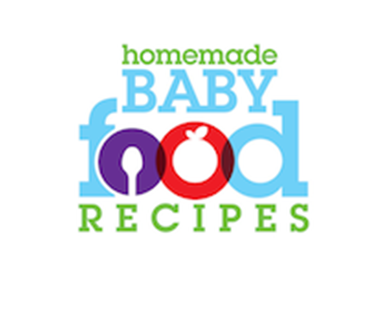Starting Solids – Are You Under Pressure To Introduce Solid Foods Too Early?
Starting solids is a major milestone in your baby’s life and experts agree that he should be at least 6 months of age before you introduce “real” food.
So what do you do if you are under pressure from family and friends to feed your baby solid food earlier than this?

PLEASE NOTE: The information given here is meant as a guide and does not replace professional medical advice. It is important to discuss the introduction of solid foods with your child’s doctor.
This information relates to advice from friends/family to introduced foods earlier than suggested by your pediatrician.
If, however, your pediatrician recommends that your baby starts solids before 6 months of age (particularly if your baby has any type of feeding difficulty that may make solids necessary earlier than usual), then please read our page about introducing solids at 4 to 6 months.
Whether you ask for it or not, friends and relatives will offer you plenty of advice about caring for your baby…
When you have a baby, it seems as if everyone you know has an opinion on how you should raise him or her!
A little advice can be useful, particularly when you are a first-time parent and everything is new!
But in some situations, particularly when your baby’s grandparents are involved, advice can feel like criticism – or pressure.
It can be intimidating – and many parents in this situation find it difficult to stand their ground.
When our parents were raising us, the rules about starting solids were very different. Some babies were fed solid foods as early as 6 weeks of age.
Taking into account their experiences, older relatives may then be dismissive – even contemptuous – of current recommendations.
“Well, we fed you solids at 6 weeks and YOU’VE turned out OK!” …
Does that sound familiar to you?
So what DO you do when your parents, or your in-laws, make suggestions or offer advice that is, at best, uninvited – or could, more seriously, be dangerous?
Always, ALWAYS thank the grandparent concerned for their interest…
Even though you may be seething inside at what you see as unwelcome interference.
Many offers of advice come from a simple and genuine desire to help.
So smile sweetly and - before you say anything else - say thank you.
Really LISTEN to the advice being offered
Sometimes, we automatically put up a wall when we feel we are being preached to or criticised in some way.
But by doing so, we may be missing out on a useful piece of information.
We are often willing to accept advice from other parents in our situation – but we tend to forget that our own parents were once in this situation too – and now have a wealth of information to share with us.
So, you’ve listened to the advice, but you KNOW it’s bad advice
What if the advice you're offered contradicts the up-to-date guidelines for deciding when your baby is ready for solids?
You can simply point out that your child’s pediatrician has suggested otherwise, and that you prefer to follow his/her recommendations.
If you feel inclined, though, it may be worth expanding on this a little by explaining the reasoning behind current guidelines.
Thinking has changed in many ways over the years when it comes to baby care.
Here are a few good examples to illustrate your point:
When our parents were raising us…
- The medical profession advised placing infants on their tummies to sleep. Research proved that this practice may contribute to SIDS (cot death). The guidelines were subsequently changed, encouraging parents to place infants on their backs instead and the number of deaths due to SIDS have decreased dramatically.
- Smoking and drinking during pregnancy were perfectly acceptable. Now they are known to have the potential to cause prematurity, birth defects and low birth weight.
- Breastfeeding was not encouraged – in fact, mothers were given injections to dry up their milk supply. We now know that breastmilk is THE best source of infant nutrition.
- Babies were given evaporated milk formulas containing sugar and lacking the vitamins and iron we now know a baby needs. These formulas were so inadequate that solid foods were necessary from around one month of age, to compensate for the nutrients missing from babies’ diets.
- In contrast, modern, commercially prepared formulas are iron-fortified. Both they and breastmilk provide babies with adequate nutrition for the first 6 months of life. In addition, studies have shown that starting solids before 6 months of age may increase the risk of babies developing food allergies and also increases the likelihood of obesity.
So, going back to the original comment – “Well, we fed you solids at 6 weeks and YOU’VE turned out OK!” …
…is that REALLY the case?
With over 2 million Americans suffering from various food allergies and approximately 65% of the population overweight (around 31% obese) – it certainly makes you wonder!
Education is key!
Educate yourself when it comes to good nutrition for your baby, then refer your baby’s grandparent to the sources of those facts.
Or, if it suits you, bring them along to the next appointment with your child’s pediatrician!
If you feel as if you're not being heard...
…then it’s doubly important to state your position calmly but firmly.
Remember, this is YOUR baby...
and you should never feel under pressure to make decisions for him based on the unqualified advice of others – particularly when these decisions will directly impact your baby’s health.
For example, well meaning friends and relatives may…
- suggest starting solids in order to get your baby to sleep through the night. This is a myth. Starting solids too early may well cause digestive problems and discomfort which will cause your baby (and you) to wake MORE frequently at night.
- tell you that your baby “needs” extra water. Formula-fed babies do not “need” extra water until AT LEAST 6 months of age. Breastfed babies do not require ANY extra water if nursed frequently – our facts about water page gives more information about the dangers of giving water to babies under 6 months of age.
- tell you that your breastfed baby “needs” iron supplements or iron-fortified cereal. This isn’t always the case – iron supplements for infants are generally only required if signs of iron deficiency anemia are present.
- advise you that your baby is not eating enough and that you should “make” them eat more. This affects your child’s ability to judge how much food his body needs – see How Much Should My Baby Be Eating? to discover how this can lead to weight problems in later life.
It is also important to make sure that anyone who cares for your child does NOT give them foods which are unsuitable or potentially dangerous – many a horrified parent has discovered that Grandpa gave their young baby chocolate or ice-cream, for example!
Do you feel that your parenting philosophies are being challenged?
Then search for a Facebook group for other like-minded parents.
It’s a great way to reinforce your beliefs and even to “let off steam”, without affecting those close to you.
Make sure that you and your partner present a united front
This is particularly important when dealing with in-laws!
A combination of tact, firmness and confidence – along with an acknowledgement of how much you value this person’s interest in your baby’s life – will ensure that you can adopt the parenting methods YOU choose, without hurting anyone’s feelings.
On a final note…
Don’t forget that grandparents can play a very special role in the lives of your children.
It’s incredibly important to do all you can to preserve and nurture this valuable relationship – even if that does mean biting your tongue from time to time!
Fisher Price has a nice Grandparenting section which keeps grandparents up to date with the latest infant guidelines, from tummy time and breastfeeding to appropriate toys and safety tips.
More Recipes and Tips...
Is rice cereal REALLY the best first food for baby?
Introducing solids to your breastfed baby

